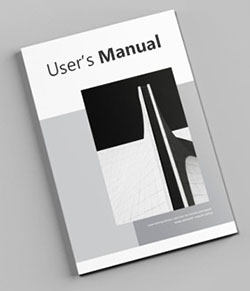Religious Moderation as the Pillar of Islamic Education: A Cross-Disciplinary Approach for the Global Era
Abstract
Abstrak: Moderasi beragama menjadi fondasi penting dalam pendidikan Islam, khususnya dalam menghadapi tantangan era global yang ditandai oleh meningkatnya intoleransi dan konflik antarbudaya. Artikel ini mengeksplorasi konsep moderasi beragama sebagai pilar pendidikan Islam melalui pendekatan lintas disiplin, mencakup perspektif multi-, inter-, dan transdisipliner. Metode kajian literatur digunakan untuk menganalisis nilai-nilai moderasi beragama seperti tawazun, tasamuh, dan i’tidal, serta penerapannya dalam kurikulum pendidikan Islam. Hasil penelitian menunjukkan bahwa pendekatan lintas disiplin tidak hanya memperkaya pembelajaran, tetapi juga memperkuat integrasi nilai-nilai keislaman dengan kebutuhan global. Strategi penguatan moderasi beragama melalui pendidikan melibatkan pengembangan kurikulum berbasis nilai, metode pembelajaran dialogis, serta kolaborasi antar pihak terkait. Dengan pendekatan ini, pendidikan Islam diharapkan mampu mencetak generasi yang toleran, inklusif, dan berkontribusi dalam membangun harmoni global.
Abstract: Religious moderation serves as a vital foundation in Islamic education, especially in addressing the challenges of the global era marked by increasing intolerance and intercultural conflicts. This article explores the concept of religious moderation as a pillar of Islamic education through a multidisciplinary, interdisciplinary, and transdisciplinary approach. A literature review method is employed to analyze the values of religious moderation, such as balance (tawazun), tolerance (tasamuh), and justice (i’tidal), as well as their application in Islamic educational curricula. The findings reveal that a cross-disciplinary approach not only enriches learning experiences but also strengthens the integration of Islamic values with global demands. Strategies to enhance religious moderation in education include value-based curriculum development, dialogical teaching methods, and collaboration among relevant stakeholders. With this approach, Islamic education is expected to produce generations that are tolerant, inclusive, and capable of contributing to global harmony.
Keywords
Full Text:
PDFReferences
Abdul-Jabbar, W. Kh., & Makki, Y. (2024). Integrating Intercultural Philosophy into the High School Curriculum: Toward a Deliberative Pedagogy of Tadabbur in Diasporic Muslim Education. Religions, 15(2), 189. https://doi.org/10.3390/rel15020189
Afwadzi, B., Sumbulah, U., Ali, N., & Qudsy, S. Z. (2024). Religious moderation of Islamic university students in Indonesia: Reception of religious texts. HTS Teologiese Studies / Theological Studies, 80(1). https://doi.org/10.4102/hts.v80i1.9369
Al-Jayyousi, O., Hasan, W. N. W., Mohamed Saniff, S., Sever, S. D., & Tok, E. (2023). A Critical Discourse Analysis on Climate Change in a Globalized World: The Nexus of Islam and Sustainable Development. Sustainability, 15(19), 14515. https://doi.org/10.3390/su151914515
Andi Baso Malla, H., Almahdali, I., Ratu, B., & . M. (2023). Implementation of Multicultural Education in Islamic Education Subjects through Collaboration of Online Applications as Character Building. KnE Social Sciences. https://doi.org/10.18502/kss.v8i4.12899
Ashadi, A., & Sefriyono, S. (2023). Min al-imtiyāz al-ijtimā’ī ila al-tasāmuḥ al-dīnī: Ṣūrat li ta’āyush mujtama’ Minangkabau al-Muslim wa mujtama’ Nias al-Masīḥī. Studia Islamika, 30(2), 349–382. https://doi.org/10.36712/sdi.v30i2.32763
Awaludin, A. (2024). Documenting the Half-Century Evolution of Islamic Education Research: A Probabilistic Topic Modeling Study of the Literature from 1970 to 2023. Studia Islamika, 31(3), 439–475. https://doi.org/10.36712/sdi.v31i3.41513
Ebeidy, M. A. I. T., & Abdellahi, D. M. C. (2024). Values of Coexistence in Islamic Civilization: The Relationship with Others and the Challenge of Extremism. Evolutionary Studies In Imaginative Culture, 856–868. https://doi.org/10.70082/esiculture.vi.921
Ely, A., Marin, A., Charli-Joseph, L., Abrol, D., Apgar, M., Atela, J., Ayre, B., Byrne, R., Choudhary, B. K., Chengo, V., Cremaschi, A., Davis, R., Desai, P., Eakin, H., Kushwaha, P., Marshall, F., Mbeva, K., Ndege, N., Ochieng, C., … Yang, L. (2020). Structured Collaboration Across a Transformative Knowledge Network—Learning Across Disciplines, Cultures and Contexts? Sustainability, 12(6), 2499. https://doi.org/10.3390/su12062499
Guswenti, M., Sabarudin, S., Saputra, A., & Nurlatifah, F. (2022). Pengembangan Sikap Moderasi Beragama Mahasiswa melalui Mata Kuliah Praktik Ibadah Kemasyarakatan di UIN Fatmawati Sukarno Bengkulu. Jurnal Intelektual: Jurnal Pendidikan Dan Studi Keislaman, 12(2), 113–126. https://doi.org/10.33367/ji.v12i2.2751
Hasibuan, S. Y., Efendi, E., Armanda, D., & Saifulloh, Y. (2023). Pola dan Strategi Dakwah Dalam Moderasi Beragama. Da’watuna: Journal of Communication and Islamic Broadcasting, 3(2), 709–720. https://doi.org/10.47467/dawatuna.v3i2.2766
Heinzmann, J., Simonson, A., & Kenyon, D. (2019). A Transdisciplinary Approach is Essential to Community-based Research with American Indian Populations. American Indian and Alaska Native Mental Health Research, 26(2), 15–41. https://doi.org/10.5820/aian.2602.2019.15
Howell, N. R. (2022). The evolution of religion, religiosity and theology: A multilevel and multidisciplinary approach: edited by Jay R. Feierman and Lluis Oviedo, London and New York, Routledge, 2020, 318 pp., $155.00 (hardcover), ISBN 978-0-367-250263. Theology and Science, 20(2), 265–266. https://doi.org/10.1080/14746700.2022.2051257
Husni, & Hayden, W. (2024). The Epistemology of Ta’dib in Islamic Civilizational Discourse: Reviving and Reconstructing Contemporary Muslim Scholars’ Views. Journal of Al-Tamaddun, 19(1), 181–197. https://doi.org/10.22452/JAT.vol19no1.14
Inayatillah, I., Kamaruddin, K., & M. Anzaikhan, M. A. (2022). The History of Moderate Islam in Indonesia and Its Influence on the Content of National Education. Journal of Al-Tamaddun, 17(2), 213–226. https://doi.org/10.22452/JAT.vol17no2.17
Jamal, A. (2022). Religious Moderation In The Perspective Of The Ushul Fiqh: Building Dialectics and Finding Common Points. Proceedings: Dirundeng International Conference on Islamic Studies, 369–376. https://doi.org/10.47498/dicis.v1i1.1037
Karim, A. (2022). Integration of Religious Awareness in Environmental Education. QIJIS (Qudus International Journal of Islamic Studies), 10(2), 415. https://doi.org/10.21043/qijis.v10i2.14404
Kawakip, A. N., & Sulanam, S. (2023). The Practice Of Shared Of Values And Islamic Educational Identity: Evidence from a Pesantren in East Java, Indonesia. Journal Of Indonesian Islam, 17(1), 27. https://doi.org/10.15642/JIIS.2023.17.1.27-53
Khan, M. M. (2024). Building Bridges of Understanding: Cross-Cultural Religious Literacy Initiatives in Pakistan. The Review of Faith & International Affairs, 22(1), 38–42. https://doi.org/10.1080/15570274.2024.2303280
Laabdi, M., & Elbittioui, A. (2024). From Aslamat al-Maᶜrifa to al-Takāmul al-Maᶜrifī: A Study of the Shift from Islamization to Integration of Knowledge. Religions, 15(3), 342. https://doi.org/10.3390/rel15030342
Mibtadin, Habib, Z., Ahsanul Khalikin, Wakhid Sugiyarto, Marpuah, A.M. Wibowo, & Reslawati. (2024). Dynamics of Moderation of Religious Islamic Organizations in Indonesia. Evolutionary Studies In Imaginative Culture, 960–971. https://doi.org/10.70082/esiculture.vi.876
Mustofa, A. (2020). Tela’ah Konsep Nilai-Nilai Pendidikan Islam. Ilmuna: Jurnal Studi Pendidikan Agama Islam, 2(2), 233–254. https://doi.org/10.54437/ilmuna.v2i2.203
Mu’ti, A. (2023). Pluralistic Islamic Religious Education: A Vision for Indonesia. The Review of Faith & International Affairs, 21(2), 121–127. https://doi.org/10.1080/15570274.2023.2200280
Nasution, F. A., Sutrisno, J., Nuryadin, D., Yasin, A., & Pribadi, M. A. (2024). Considerations on the Prohibition of Interfaith Greetings in Indonesia: Between Religion and Harmony. Pharos Journal of Theology, 106.1. https://doi.org/10.46222/pharosjot.106.9
Purniadi Putra, Dwi Septiwiharti, Agustan, Rinovian, Kadek Yati Fitria Dewi, & Abdul Hafiz. (2024). The Role of Parents in Religious Moderation Education in Border Areas: A Case Study at MIS Nurul Yaqin Sijang. Evolutionary Studies In Imaginative Culture, 831–837. https://doi.org/10.70082/esiculture.vi.940
Qoumas, Y. C., Binti Mohd. Hussain, R. B., & Bin Abdul Rahim, R. A. (2024). The Dissemination of Religious Moderation Through the Policy of the Indonesian Ministry of Religious Affairs. QIJIS (Qudus International Journal of Islamic Studies), 12(1), 147. https://doi.org/10.21043/qijis.v12i1.27552
Rohmatulloh, R., Hasanah, A., Sahlani, L., & Zuhri, M. T. (2023). Energy-Saving Triangle: Internalizing Islamic Ethical Values on Energy Saving in Integrative Learning. Religions, 14(10), 1284. https://doi.org/10.3390/rel14101284
Saada, N. (2023). Educating for global citizenship in religious education: Islamic perspective. International Journal of Educational Development, 103, 102894. https://doi.org/10.1016/j.ijedudev.2023.102894
Sari, D. I., Darlis, A., Silaen, I. S., Ramadayanti, R., & Tanjung, A. A. A. (2023). Moderasi Beragama dalam Pendidikan Islam di Indonesia. Journal on Education, 5(2), 2202–2221. https://doi.org/10.31004/joe.v5i2.873
Sholikah, S., Mumtahanah, N., & Fahruddin, A. H. (2022). Urgensi Kajian Keislaman Dengan Pendekatan Multidisipliner Dalam Menghadapi Isu-Isu Kontemporer. Akademika, 16(1). https://doi.org/10.30736/adk.v16i1.915
Sijamhodžić-Nadarević, D. (2024). Philosophy and Pedagogy of Islamic Education in Today’s Europe. Journal of Muslims in Europe, 13(3), 365–378. https://doi.org/10.1163/22117954-bja10106
Soebahar, Moh. E., Muhajarah, K., Suyurno, S. S., Embong, R. B., & Panaemalae, A. (2023). Islamic devotion in Indonesia, Malaysia, and Thailand as a deterrent against religious extremism. HTS Teologiese Studies / Theological Studies, 79(1). https://doi.org/10.4102/hts.v79i1.9366
Subhan, A. (2023). Al-Madrasah (Madrasah) am al-Madrasah al-’Āmmah (Sekolah): Al-Mufaḍḍalah ‘inda Atbā’ Jam’iyyah al-Muḥammadiyyah wa Nahḍah al-’Ulamā fī Indūnīsiyā. Studia Islamika, 30(3), 561–594. https://doi.org/10.36712/sdi.v30i3.38201
Syawaludin, M., & Fikri, Muh. S. (2024). The Socio-Cultural Roots of Religious Moderation in Indonesia: A Case Study of Palembang and Lampung, Southern Sumatra. Evolutionary Studies In Imaginative Culture, 14–30. https://doi.org/10.70082/esiculture.vi.668
Thimm, V. (2025). Bringing Intersectionality to the Core of Social and Cultural Anthropology: Scaling Holistic Intersectionality. Ethnos, 90(1), 110–127. https://doi.org/10.1080/00141844.2023.2226833
Thoyib, M. E., Degaf, A., Fatah, A. A., & Huda, M. H. (2024). Religious Tolerance among Indonesian Islamic University Students: The Pesantren Connection. Journal of Al-Tamaddun, 19(2), 239–250. https://doi.org/10.22452/JAT.vol19no2.16
Wada, M., Grigorovich, A., Kontos, P., Fang, M. L., & Sixsmith, J. (2021). Addressing Real-World Problems Through Transdisciplinary Working. In A. Sixsmith, J. Sixsmith, A. Mihailidis, & M. L. Fang (Eds.), Knowledge, Innovation, and Impact (pp. 121–129). Springer International Publishing. https://doi.org/10.1007/978-3-030-34390-3_17
Yasmadi, Y., Husna, I., Arsya, F., Rahmah, A., Kustati, M., & Perrodin, D. D. (2024). Insights from a State Islamic University on Arabic Education as a Catalyst for Religious Moderation in Indonesia. International Journal of Language Education, 8(3). https://doi.org/10.26858/ijole.v8i3.66496
DOI: https://doi.org/10.31764/jail.v8i2.30323
Refbacks
- There are currently no refbacks.
Copyright (c) 2025 Surya Eka Priyatna, Ridhahani Fidzi, Syaifuddin Sabda, Husnul Yaqin

This work is licensed under a Creative Commons Attribution-ShareAlike 4.0 International License.
Al-I’lam: Jurnal Komunikasi dan Penyiaran Islam
Fakultas Agama Islam Universitas Muhammadiyah Mataram.
Alamat Redaksi:
Jln. KH. Ahmad Dahlan No. 1 Pagesangan – Mataram
Telpon 085946008096 | email: [email protected]
INDEXED BY:

.png)
2.png)


























